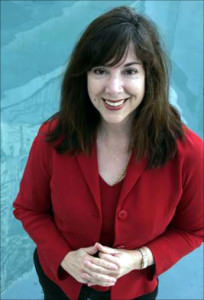The Kennedy Center’s entry in the Women’s Voices Theater Festival was a one-night-only reading of Roe, a new two-act play by Lisa Loomer that dramatically personalizes pivotal chapters in the backstory of the Supreme Court’s 1973 Roe v. Wade decision. The issues around abortion that were passionately contested in that case—and became a flashpoint for deep political divisions in America—have become even more explosive today. With anti-abortion legislators prepared to shut down the government in order to defund Planned Parenthood—the entire organization, not just the abortion services it provides with private funding—a playwright’s skillful, balanced, and clear-eyed take on the real-life run-up to Roe v. Wade could not be more timely.

The parentage of Roe the play is impressive. Last night’s reading was planned by The Kennedy Center American College Theater Festival and The Kennedy Center Kenan Fellowship Program in association with the Oregon Shakespeare Festival, which commissioned Loomer to write a work about Roe v. Wade as one of 37 plays “sprung from moments of change in United States history” for its ambitious American Revolutions: The United States History Cycle.
Roe will premiere at The Oregon Shakespeare Festival in a full production next year. For the time being, an audibly engaged audience of about a hundred in The Kennedy Center Theater Lab were treated to a preview reading by 13 top-tier actors directed by Bill Rauch.
What follows is therefore merely a preliminary report, not a full-on review.
Loomer’s play focuses on two key historical figures: Sarah Weddington, the young prosecutor who argued Roe v. Wade before the Supreme Court, and Norma McCorvey, who as a pregnant 22-year-old seeking an abortion was enlisted by Weddington to be the plaintiff known as “Jane Roe.” The choice to pit these two personalities against each other served the script and the reading experience well.
We see Weddington, 24 when the play begins, in a women’s consciousness-raising group whose uptight members have just read Our Bodies, Our Selves and are fumblingly following its instructions for inspecting their cervixes. We meet McCorvey in a lesbian bar as a good-time gal with a gift for gab that the audience greatly enjoyed (E.g., “It’s cold enough to freeze the balls off a pool table” and “I’m so poor I can’t afford to pay attention”). The tension between this delightful dyke and this ladylike lawyer gets the play off to a snappy start.
There are a number of novel stage effects called for in the script. For instance, the ensemble at times dons robes to represent the Supreme Court. The actual recorded voices of Justices Burger, Stewart, White, and Marshall can be heard during Weddington’s argument before the court. And there is a running theme about the unreliability of first-person accounts that is set up when Weddington and McCorvey—in direct address to the audience outside the chronology of the play—hold up and reference their respective books: Weddington’s A Question of Choice (1992) and McCorvey’s I Am Roe (1994). The accounts differ on telling points, and the script makes dramatic use of the disparities. The script also spots discrepancies between I Am Roe and McCorvey’s second book,Won by Love (1998). The problem with history, one narrator explains, is that not only do people not agree with each other; “people don’t agree with themselves.”
In two dozen tight scenes, the play goes from 1969 to now, and its sweep and scope can be gleaned from the following cast list, which highlights the historical figures portrayed. (Sarah Agnew and Sara Bruner will play their roles in the Oregon Shakespeare Festival premiere; all the other actors are local to DC.)
Sarah Agnew: Sarah Weddington
Sara Bruner: Norma McCorvey
Tonya Beckman: Ilene (McCorvey’s friend), Kate Michaelman (president of NARAL Pro-Choice America), and others
Gabriela Fernandez-Coffey: Connie Gonzales (McCorvey’s long-time partner) and others
Rick Foucheux: Supreme Court Justice Blackmun (who wrote the Roe v. Wadedecision) and others
Kimberly Gilbert: Melissa (McCorvey’s first child) and Emily* (a seven-year-old Evangelical Christian)
Michael Glenn: Henry McCluskey (a Dallas adoption lawyer), Jay Floyd (who represented Dallas County DA Henry Wade and argued the anti-abortion case), and others
Helen Hedman: Mary (McCorvey’s mother), Betty Friedan (author), and others
Paige Hernandez: Roxanne* (a pregnant young woman)
Thomas Keegan: Philip “Flip” Benham (an Evangelical Christian minister and leader of Operation Rescue) and others
Susan Lynskey: Linda Coffee (an attorney who with her colleague Weddington brought the 1972 case that challenged the Texas anti-abortion law), Eleanor Smeal (president of the National Organization for Women), and others
Dawn Ursula: stage directions reader
MaryBeth Wise: Gloria Allred (women’s rights attorney) and others
*These and many other roles in Roe are non-historical characters, created by the playwright.

It will come as no news to those familiar with the fallout from Roe v. Wade that the woman at the center of the case, “Jane Roe,” in real life converted to Evangelical Christianity then Roman Catholicism and joined the anti-abortion movement. To its credit the play Roe makes that character arc completely comprehensible and emotionally compelling. When McCorvey, for instance, learns from reading A Question of Choicethat Weddington herself had an abortion and never told McCorvey, she is outraged: “If you wanted to help me get an abortion, why didn’t you tell me where you got yours?!” McCorvey yells, understandably feeling betrayed.
McCorvey says she feels “used by the feminists and used by the press,” and the play pulls no punches about how that in fact was what happened and how it left her isolated, without support, and needy for the embrace and acceptance of fervent believers. (I was reminded of Linda Marchiano, known as “Linda Lovelace” for her role in Deep Throat,the making of which was the basis of Lovelace, a film I reviewed for this site. For years afterward Marchiano testified against the pornography industry—in the context of the feminist anti-pornography movement—about how she had been harmed, but near the end of her life she went back to making porn because she needed the money. What happens to poster people when the posters come down is often not a pretty picture.)
To be sure, the play does stay faithful to the spirit of the Roe v. Wade decision in underscoring the principle that the right to choose (under current interpretation of the Constitution, at least) belongs solely to the pregnant woman—not the state, not the church, not anyone else. In a surprise of a scene that functions like a coda, a young pregnant woman confronts Weddington and demands to know whether abortion is murder. Weddington waffles, citing the fact that a fetus has not been judicially defined as a person.
“Don’t give me the law,” says the young woman; “give me the truth.”
“We can give you the choice,” Weddington answers measuredly, “but you have to choose.”
Running Time: Two hours 40 minutes, with one 15-minute intermission.
Roe was read September 28, 2015, at the Kennedy Center Theater Lab – 2700 F Street. NW, in Washington, DC.




